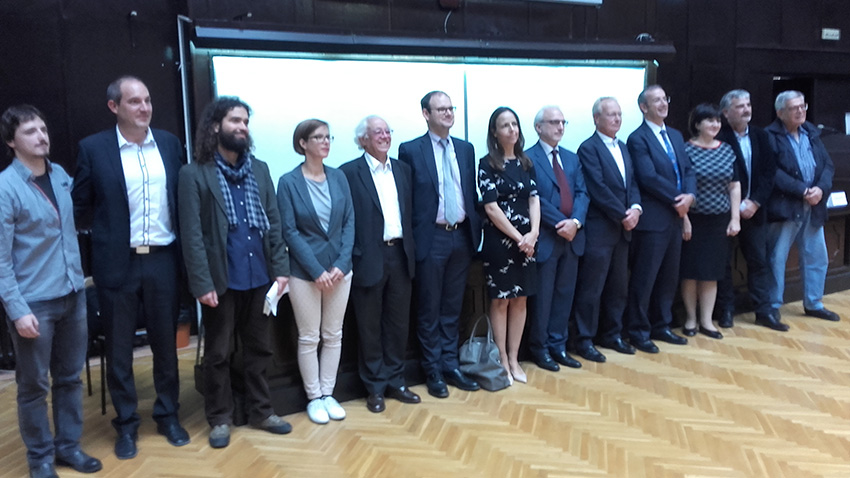Faculty of Philology in Belgrade hosted the celebration of European Day of Languages with a multilingual performance of Ode of Joy by a choir of International School in Belgrade and meeting on multilingualism which sent a message that learning languages is a way for members of different nations to meet, connect and learn about mutual diversity.
“Learning languages is a way of bringing each other together, knowing each other and exploring the richness of other cultures,” said Head of EU Delegation to Serbia Michael Davenport after receiving a Letter of Thanks from Dean of Faculty of Philology Aleksandra Vranes for his significant contribution to Faculty’s image and development of linguistics, literature and culture.
According to Davenport, Arab-speaking Serbs who helped refugees make a great example because they could understand the needs of refugees.
He added that borrowing words and phrases makes languages change; this is especially true when it comes to acronyms and abbreviations. Tim Cartwright Head of Council of Europe Office in Serbia agreed on this.
Reminding of acronyms such as EU (European Union), UN (United Nations) and OSCE (Organisation for Security and Cooperation in Europe), Cartwright said that “if we are familiar with their meaning, we like them and use them frequently, but if we are not, we tend to hate them and feel excluded and ignorant. Languages are gateway, a tool for better mutual understanding, the way acronyms are not,” he said.
In words of English Literature Professor at the Faculty of Philology Zoran Paunovic, time will tell whether it is necessary to introduce a certain foreign word.
“Foreign word does not violate the purity of language, but makes it richer. It exists for a reason, to fill the void that failed to be filled by any other domestic word,” he said.
Dean of Faulty of Philology underlined the importance of translators and their influence on cultural dialogue and preservation of authentic identity as well as the importance of teachers for early and thorough mastering of language skills.
“In these times, when many countries more economically stable than Serbia are taking measures to reduce number of languages and language classes taught in schools, we are proud to have 35 languages being studied at the Faculty of Philology, whereas kids in elementary schools are obliged to learn at least two foreign languages,” Vranes said.
Directors of cultural centres in Serbia such as Austrian, British, French, Greek, Italian, German, Spanish and Portuguese cultural centres, also expressed their views on the importance of multilingualism.
At the initiative and decision of Council of Europe, European Day of Languages was established in 2001, under the auspices of the EU, with the belief that multilingualism in the Old Continent is a valuable reality that should be cherished and upheld in future. There are over 220 native languages in Europe, accounting for about three percent of the the total number of languages in the world.




